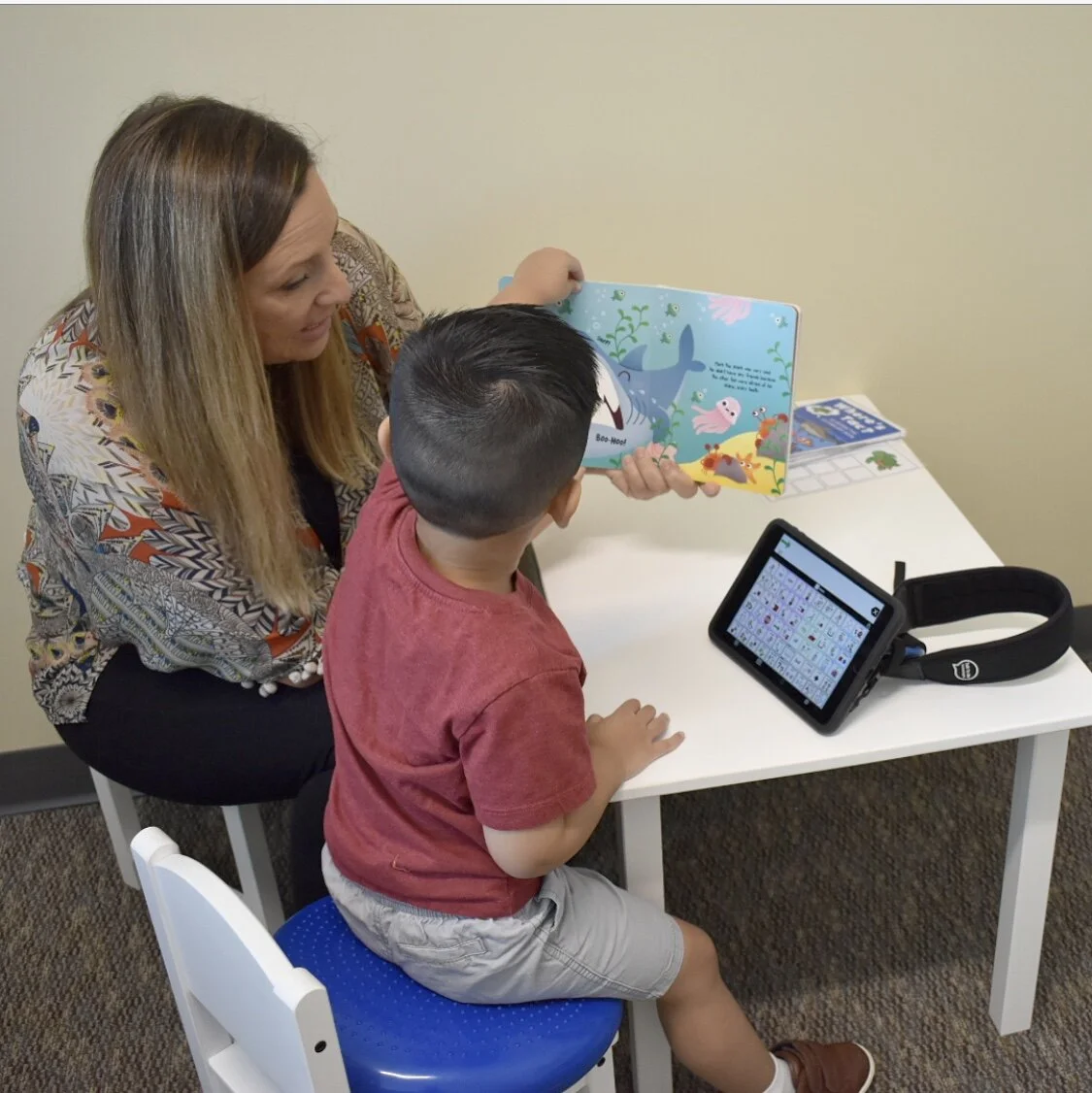Written by: Erica Lawson, M.A., CCC-SLP
Co-Founder, Speech Tree Therapy Center
When working with children with language delays or Autism Spectrum Disorders, engaging with them in play can be an excellent opportunity to teach them a variety of skills including waiting, turn taking, expressive and receptive language, and many academic skills. The challenge comes when we are not sure where to start. Following the 4 P's: Playful, Purposeful, Persistent, and Patient can help you stay on track and give you guidance for engaging your child in a meaningful way.
Playful
Remember when you were a child? That may feel like a distant memory to some, but I can still remember being a little girl and having so much fun with my friends and sister. Sometimes we played with toys, sometimes we made up dances, and sometimes we created elaborate plays using our imagination. My brother liked to play Star Wars, catch lizards, and play hide and seek. Whatever it was, we were having tons of fun and all the while, learning! When you are "working" on developing your child's language, think about the things he is interested in playing. Choosing an activity your child is interested in will keep him more engaged and more likely to absorb the new vocabulary and language you are modeling. Put yourself in his shoes and get Playful!
Purposeful
Once you have honed in on some of your child's favorite activities, it is time to start thinking about the purpose of the play activity. Will you be working on adding new vocabulary, speaking in longer sentences, following directions, or turn taking? Take a few minutes before you start the activity to jot down your goal. You should write down specific words you want to incorporate into the activity or specific directions you want to present during the activity. Choose one thing at a time to focus on during the activity. Setting a goal and giving yourself specific targets will give you direction during the activity and help you engage your child in a Purposeful way.
Persistent
Now, you are feeling ready. You have chosen an activity you know your child loves and are ready to be really playful. You have given lots of thought to your purpose, have set a goal, and written down some key information. It is time to get going and knock this activity out of the park! But as soon as you get involved in your child's play activity, it seems nothing is going the way you have planned. Suddenly it seems that your child's favorite activity has now turned into chore. Don't give up! You might decide to discontinue this activity for today, but try again another time. Use the same goal as before and try to use the same or similar language. Be persistent. Let your child know that you are there to be playful without a lot of pressure. Trying again will also let your child know that you aren't going to quit when things don't go as planned. Your persistence will pay off!
Patient
Your persistence is finally paying off and you are playing easily with your child. You are feeling more and more comfortable identifying your purpose for the play and being consistent with your language modeling. You have learned to be so playful that other adults are not sure who is having more fun, you or your child. So why then are you not hearing or seeing anything new from your child? Remember that every child learns at their own pace. Some of the progress is subtle. Has your child learned the routine of the play activity? Is your child initiating with you by bringing the toys to you? Is your child staying engaged for longer periods of time? Whatever the progress is, celebrate it. Be patient and the bigger moments will come too!
While it may be tempting to stop the play and sit at a table to introduce new skills through structured tasks it is important to remember who you’re teaching, a young child. Piaget's famous quote sums it up nicely. "Play is a child's work." Basically, children learn while they are playing. Using the 4 P's: Playful, Purposeful, Persistent, and Patient during play can further encourage learning and language. Keep these in mind when planning the next activity with your child and watch their language grow!
(June 2013)





